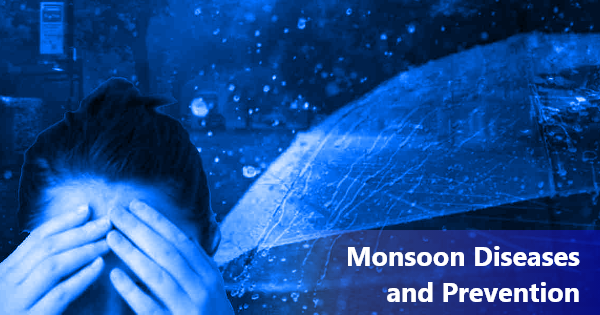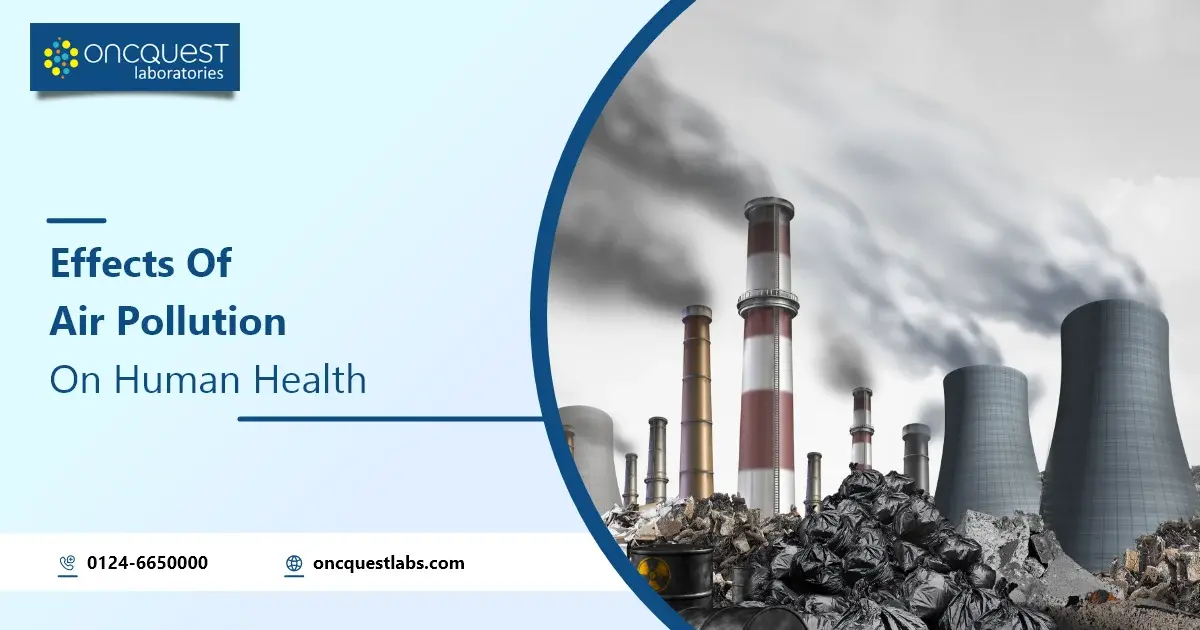The rain clouds gather and the pitter-patter of raindrops fills the air, the monsoon season brings with it a sense of relief from the scorching heat of summer. However, along with the soothing showers, this season also brings a host of health challenges, with one of the most common being fevers. Various factors, including changes in weather patterns, increased humidity, and the proliferation of disease-carrying mosquitoes, can cause monsoon fevers. Understanding the different types of fevers that can affect you during this season is crucial for timely diagnosis and appropriate treatment.
So, let’s explore the world of monsoon fevers and equip ourselves with valuable knowledge to stay healthy and enjoy the beauty of this season to the fullest. Dr. Ashish Bajaj, M.D Microbiology, Medical Microbiology, Head Technical Operation, North Zone, Oncquest Laboratories Ltd., Gurugram explains the different fevers:
Dengue Fever:
Symptoms: High fever, severe headache, joint and muscle pain, rash.
Prevention: Remove stagnant water, use mosquito repellents, wear protective clothing.
Malaria:
Symptoms: Fever, chills, sweats, fatigue, body aches.
Prevention: Use mosquito nets, wear protective clothing, use mosquito repellents.
Chikungunya:
Symptoms: High fever, severe joint pain, rash, muscle pain.
Prevention: Eliminate breeding sites for mosquitoes, use mosquito repellents.
Typhoid:
Symptoms: High fever, headache, stomach pain, weakness.
Prevention: Consume clean and boiled water, maintain proper hygiene.
Gastrointestinal Infections:
Symptoms: Diarrhea, vomiting, stomach cramps.
Prevention: Consume clean food and water, avoid street food, practice good hand hygiene.
Respiratory Infections:
Symptoms: Cough, cold, sore throat.
Prevention: Maintain personal hygiene, avoid crowded places, stay dry.
Prevention Measures During Rainy Season:
Hygiene: Wash hands regularly, maintain personal cleanliness.
Clean Drinking Water: Consume boiled or purified water to prevent waterborne diseases.
Mosquito Control: Use mosquito nets, repellents, and eliminate stagnant water.
Food Safety: Consume fresh, properly cooked, and hygienically prepared food.
Avoid Street Food: Street food might be contaminated; opt for cooked meals.
Footwear: Wear closed shoes to avoid fungal infections.
Stay Dry: Carry an umbrella, raincoat, and change wet clothes promptly.
Ventilation: Ensure proper ventilation to prevent dampness and mold growth.
Immunization: Stay up to date with vaccinations, if available.
Stay Active: Engage in regular exercise and a balanced diet to boost immunity.
Remember, prevention is key to staying healthy during the rainy season. If you experience severe symptoms, consult a healthcare professional.
During the rainy season, certain diseases become more prevalent due to factors like increased humidity, stagnant water, and higher chances of bacterial and viral growth. Here are some common rainy season diseases:
Dengue Fever:
Cause: Aedes mosquito-borne virus.
Symptoms: High fever, severe headache, joint and muscle pain, rash.
Prevention: Eliminate breeding sites for mosquitoes, use mosquito repellents, wear protective clothing.
Malaria:
Cause: Anopheles mosquito-borne parasite.
Symptoms: Fever, chills, sweats, fatigue, body aches.
Prevention: Use mosquito nets, wear protective clothing, use mosquito repellents.
Leptospirosis:
Cause: Bacterial infection from exposure to contaminated water.
Symptoms: High fever, muscle pain, vomiting, jaundice.
Prevention: Avoid wading through floodwaters, wear protective footwear.
Chikungunya:
Symptoms: High fever, severe joint pain, rash, muscle pain.
Cause: Aedes mosquito-borne virus.
Prevention: Eliminate breeding sites for mosquitoes, use mosquito repellents.
Typhoid Fever:
Cause: Bacterial infection from contaminated food or water.
Symptoms: High fever, headache, stomach pain, weakness.
Prevention: Consume clean and boiled water, maintain proper hygiene.
Gastrointestinal Infections:
Cause: Contaminated food and water.
Symptoms: Diarrhea, vomiting, stomach cramps.
Prevention: Consume clean food and water, avoid street food, practice good hand hygiene.
Respiratory Infections:
Cause: Viral infections due to close contact in crowded and damp environments.
Symptoms: Cough, cold, sore throat.
Prevention: Maintain personal hygiene, avoid crowded places, stay dry.
Conjunctivitis (Pink Eye):
Cause: Bacterial, viral, or allergic reactions.
Symptoms: Redness, itching, tearing, discharge.
Prevention: Maintain eye hygiene, avoid touching eyes with dirty hands.
Fungal Infections:
Cause: Fungi thrive in damp conditions.
Symptoms: Skin rashes, itching, discomfort.
Prevention: Keep skin dry, wear breathable clothing.
Waterborne Diseases:
Cause: Contaminated water sources.
Symptoms: Diarrhea, vomiting, abdominal pain.
Prevention: Consume clean and purified water, avoid untreated water.
Preventing these diseases involves maintaining personal hygiene, avoiding exposure to contaminated water and food, using mosquito repellents, and staying dry during the rainy season. If you experience symptoms of any of these diseases, seek medical attention promptly.
FAQs:
Q: Are monsoon diseases dangerous?
A: Yes, monsoon diseases can be dangerous if not treated promptly. Some, like dengue and malaria, can lead to severe complications.
Q: How can I protect myself from mosquito-borne illnesses?
A: Use mosquito repellents, wear protective clothing, and eliminate stagnant water around your surroundings.
Q: Can I eat raw fruits and vegetables during the rainy season?
A: It’s advisable to thoroughly wash and clean raw fruits and vegetables before consumption to prevent infections.
Q: What should I do if I develop symptoms of a monsoon illness?
A: Seek medical attention immediately and follow the prescribed treatment.
Q: Is it safe to travel during the rainy season?
A: While travel is possible, take necessary precautions, stay updated on weather conditions, and be cautious about food and water sources.
Q: Can respiratory infections spread during the rainy season?
A: Yes, respiratory infections can spread easily due to humidity and close contact. Maintain good hygiene and avoid crowded places.





